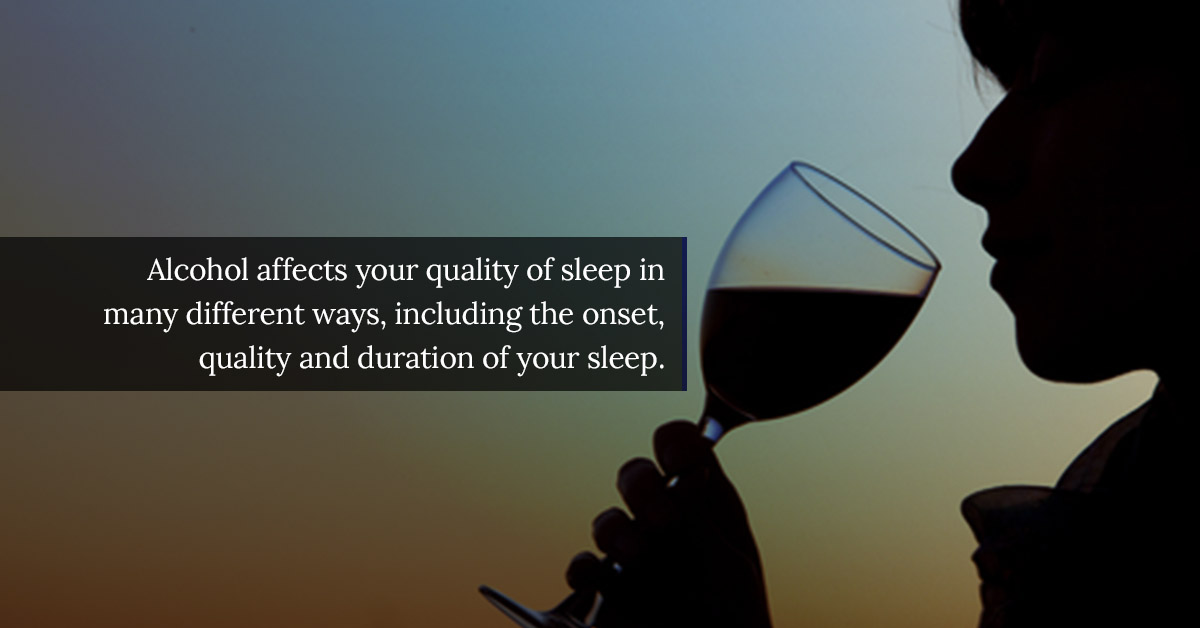Dec 4th 2016
Why Your Nightcap Isn't Working

Think you can’t get to sleep without a hot toddy or a neat scotch? Think again.
People have been drinking nightcaps to help them calm down and go to sleep for centuries, but in recent years, studies have determined that nightcaps aren’t really all that they’re cracked up to be. If you find yourself reaching for a nightcap when you’re having trouble sleeping, in all reality, you could be making the problem worse! There is an ample amount of anecdotal evidence supporting the claim that a nightcap can help you get to sleep, and while that may be true, alcohol could be affecting both the length and quality of your sleep.
How does alcohol affect your sleep?
Alcohol affects your quality of sleep in many different ways, including the onset, quality and duration of your sleep:
It’s not the alcohol; it’s the ritual.
For many people who rely on nightcaps to get to sleep at night, it’s not the alcohol itself that helps them get to sleep, but the ritual of making and drinking the nightcap before bed. Sleep is hard to come by for many people, and establishing a bedtime routine, such as drinking a nightcap, can help you sleep better at night. However, there are plenty of healthier nighttime rituals that can help you get to sleep that don’t involve alcohol.
Stop relying on alcohol to get to sleep at night.
Do you find yourself reaching for a nightcap night after night? Have you tried everything you can think of to sleep better and longer without success? If so, the problem might not as simple as you think. If you’ve tried everything but you still can’t sleep at night, you may be one of the millions of Americans who suffer from a sleep disorder. One of the most common sleep disorders is sleep apnea, and unfortunately, many of the people who are plagued by sleep apnea don’t even know that they have it. In our last blog, we went over some of the risk factors of sleep apnea, so if you haven’t had a chance to read it yet, check it out.
What should you do if you think you may have sleep apnea?
If you are worried that you may have sleep apnea, you should absolutely visit your doctor. Left untreated, sleep apnea can affect your health in many negative ways, including increasing your risk for heart disease, diabetes, stroke and many other health problems. Your doctor will probably suggest a sleep study in order to diagnose sleep apnea.
If you do have sleep apnea, you’ll be glad to know that BIPAP and CPAP therapy are extremely effective sleep apnea treatments. Sleep apnea therapy could help you finally say goodbye to ineffective nightcaps and hello to a better night’s sleep.
Here at CPAP Liquidators, we are proud to offer used CPAP and BIPAP machines that can help you find the treatment you need without breaking the bank. Regardless of whether you need a CPAP machine or a BIPAP machine, you can rest assured that it will be a much better solution to your sleep-apnea-related sleep woes than any nightcap. Shop with us today!
